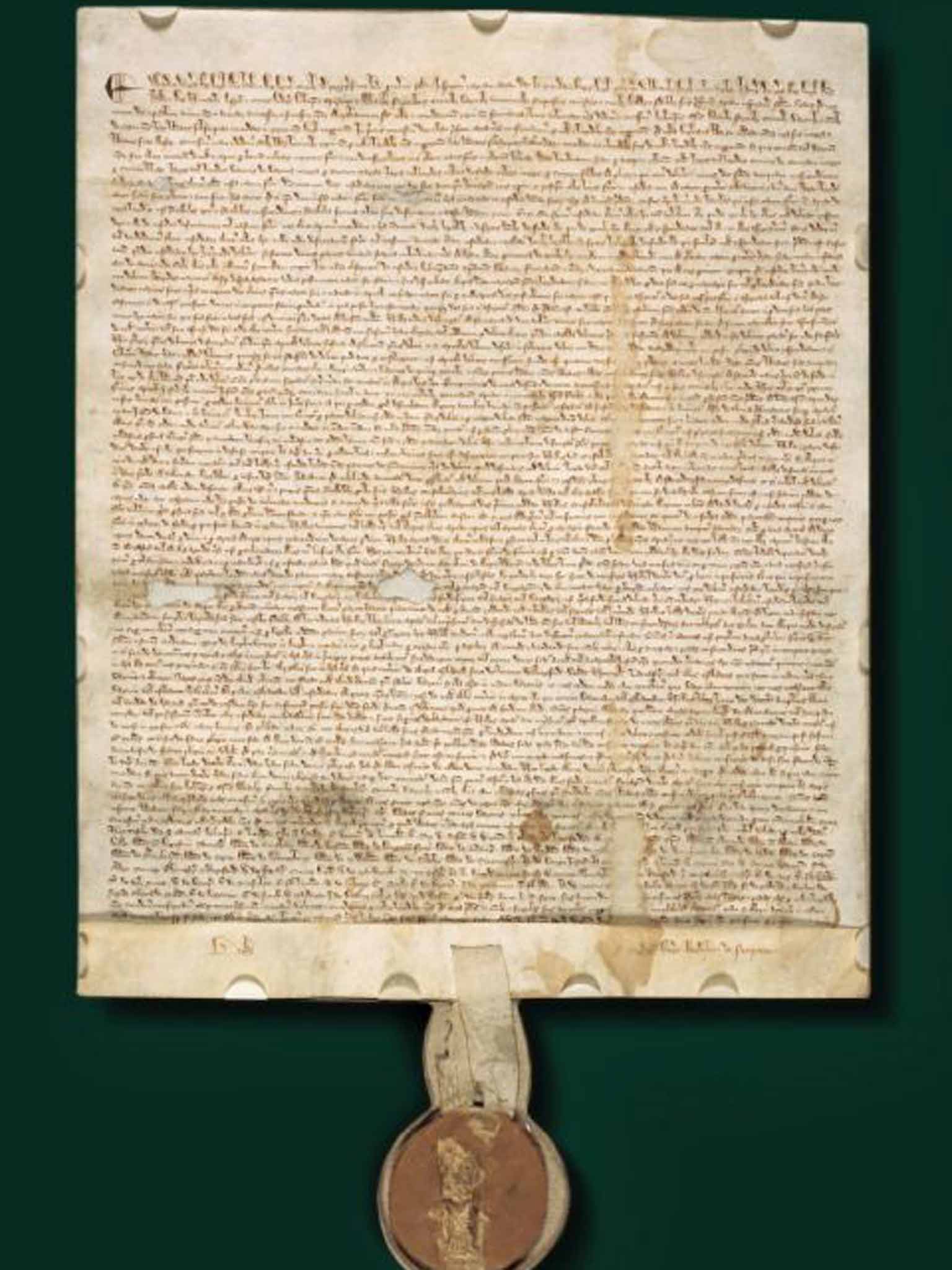Magna Carta: Contemporary account of the signing of historic document discovered

Your support helps us to tell the story
From reproductive rights to climate change to Big Tech, The Independent is on the ground when the story is developing. Whether it's investigating the financials of Elon Musk's pro-Trump PAC or producing our latest documentary, 'The A Word', which shines a light on the American women fighting for reproductive rights, we know how important it is to parse out the facts from the messaging.
At such a critical moment in US history, we need reporters on the ground. Your donation allows us to keep sending journalists to speak to both sides of the story.
The Independent is trusted by Americans across the entire political spectrum. And unlike many other quality news outlets, we choose not to lock Americans out of our reporting and analysis with paywalls. We believe quality journalism should be available to everyone, paid for by those who can afford it.
Your support makes all the difference.An account of how the signing of the Magna Carta went down with ordinary people at the time has been discovered by staff at the British Library.
King John was forced by his nobles to sign the historic document in June 1215 and it is widely seen as the birth of civil liberties in the UK, as it enshrined the right to swift and fair justice and put legal controls on the head of state’s power.
However a poem written shortly afterwards by Scottish monks in the Melrose Chronicle saw it rather differently, according to a report in The Guardian.
“A new state of things begun in England; such a strange affair as had never been heard; for the body wishes to rule the head, and the people desired to be masters over the king,” it says in Latin.
However it goes on to explain: “The king, it is true, had perverted the excellent institutions of the realm, and had mismanaged its laws and customs, and misgoverned his subjects.
“His inclination became his law; he oppressed his own subjects; he placed over them foreign mercenary soldiers, and he put to death the lawful heirs, of whom he had obtained possession as his hostages, while an alien seized their lands.”
Julian Harrison, the British Library’s curator of medieval manuscripts, found the poem in the chronicle, which appears not to have been examined for mentions of the Magna Carta before.
“It does set out in quite precise terms the sequence of events at Runnymede [where it was signed] for negotiations between the king and the barons,” he told The Guardian. “There is no official report of what happened. We don’t actually know who was present.
“This is sufficiently detailed to suggest that the person was present or knew somebody who was present.”
He said he believed a Scottish noble called Alan of Galloway, who was at Runnymede for the signing, may have gone to Melrose on his way home and told the monks what had happened.
Join our commenting forum
Join thought-provoking conversations, follow other Independent readers and see their replies
Comments